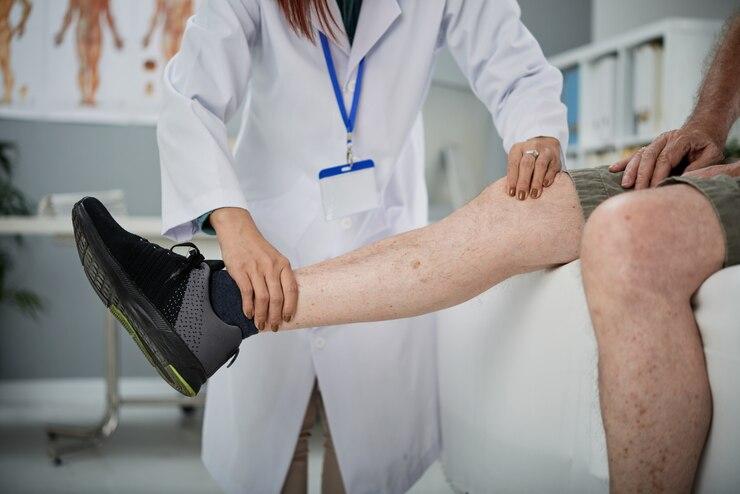Varicose vein surgery marks a critical step towards resolving the discomfort and complications of varicose veins. However, the postoperative phase is equally important in the journey to complete recovery. Dr. Sumit Kapadia, a distinguished varicose veins specialist in Vadodara, offers insights into managing the common challenges faced after such surgeries.

Understanding Varicose Vein Surgery
Varicose vein procedures, ranging from laser therapy to vein stripping, aim to alleviate the issues caused by leg varicose veins. These treatments, while effective in addressing the root cause of varicose veins, involve a recovery period where patients might encounter several post-surgery symptoms.
Post-Surgery Challenges and Management
Post-varicose vein surgery, patients often deal with swelling, bruising, pain, and other discomforts. Dr. Kapadia emphasizes the importance of understanding these challenges for a smooth and speedy recovery.
Swelling Management: Swelling is a natural response to surgery. Elevating the legs, using compression stockings, and gentle walking can significantly alleviate this symptom.
Bruising: Bruising is common and varies in intensity. It usually resolves within a few weeks following surgery. Using ice packs and anti-inflammatory medications can help manage this.
Pain Management: Pain, ranging from mild to moderate, is expected post-surgery. Adhering to prescribed pain management techniques, including medications and rest, is vital for comfort and recovery.
Skin Color Changes and Itching: Temporary changes in skin color and itching around the treated area are normal. These signs indicate the body's healing process but should be monitored for any abnormalities.
Numbness or Tingling: Temporary numbness or tingling may occur due to minor nerve injuries during surgery and generally resolves without intervention.
Tips for a Speedy Recovery
Recovering from varicose vein surgery requires adherence to specific care instructions.
Following Post-Operative Instructions: Carefully follow your surgeon’s guidelines on wound care and activity limitations.
Hydration and Nutrition: Maintain a healthy diet and stay hydrated to support the healing process.
Avoiding Long Periods of Sitting or Standing: Frequent movement is key to preventing complications and promoting blood flow.
Sun and Heat Exposure: Protect the healing areas from direct sun exposure and avoid hot baths or saunas.
Monitoring for Infection: Be vigilant for any signs of infection and consult your doctor if any such symptoms arise.
Rest and Follow-Up Appointments: Prioritize rest and attend all follow-up appointments to ensure proper healing and address any concerns.
Conclusion
The postoperative period of varicose vein surgery is crucial for achieving the best outcomes. Under the guidance of a specialist like Dr Sumit Kapadia, patients can navigate this journey effectively. Awareness of potential post-surgery issues and adherence to recovery guidelines are key to ensuring a quick and comfortable return to health.
